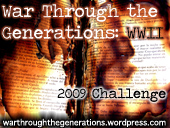genre: non-fiction
What is the root of mental illness - that continuum of afflictions that affect so many people in some degree? How are these illnesses related and can knowledge of that root somehow be used to stimulate change?
As someone with my own issues who also interacts daily with those using medication to help stem the tide of the pain of mental illness, I was interested in this book because I hoped it would give me some insight into the minds of these people that I love. I think I approached it in the wrong way - I was looking for Answers and the reality is that as advanced as science is, there are not really very many Answers to be found yet when it comes to the roots of Depression, Anxiety, Bi-Polar Disorder, etc. We know what medicines can sometimes make a big difference in terms of symptoms but the mind is so complex that something more than measurable chemicals is needed to help us understand what is going wrong in a mind that's struggling.
What this book discusses is the idea of "capture," which was a bit hard for me to wrap my head around and I'm still trying to process it. My super basic understanding is that when a stimulus (a thought, something we see etc) somehow gets our attention and our behavior changes because of it, that's "capture." This book is not only a history of mind-theory (my made-up phrase) but also a series of case studies and stories about the different ways this capture can manifest itself - for both good and bad outcomes. The historical part got pretty deep for me, truthfully, in several sections I did have to do a little skimming.
I found the stories of people whose mental illness impacted either themselves or, just as tragically, others around them and the deconstruction of their thinking very interesting. I also think that this book gave me some concrete thoughts about how my own mind works, I've already found myself looking back at some ideas I highlighted as I think over it all.
The idea is capture is powerful because I feel like it empowers those struggling with mental illness to try and exert some influence over their unhealthy thoughts. Yes, medication and therapy are essential for a lot of people, but even when medicated, I know, unhealthy thoughts can make life very challenging. I almost wish there was a "junior novelization" of this book, or a cliff notes - where I could ingest more easily the big ideas in a condensed form.
Some of Capture was slow-going and some parts required a lot of brain power while other parts seemed not as relevant to the subject but in the end, I'm glad I read it. The storytelling sections are very readable and it's important for me to give myself time to think about this topic and I have some new ideas in my head. And that matters.
Purchase Links: HarperCollins | Amazon


































1 comment:
I like your idea of cliff notes - after reading a book like this, so packed with info, I think I'd like a study guide of sorts to help me digest the info.
Thanks for being a part of the tour!
Post a Comment